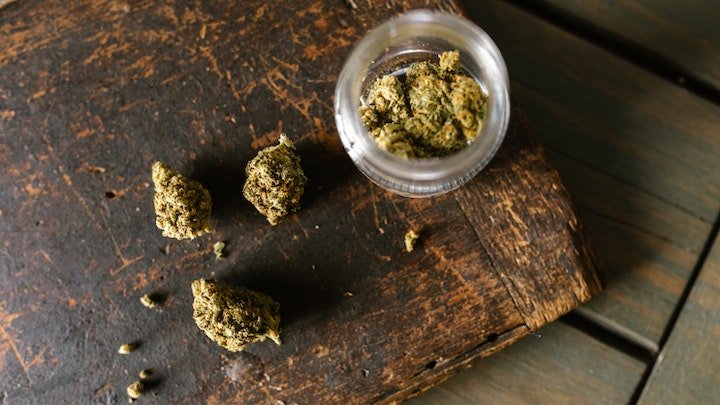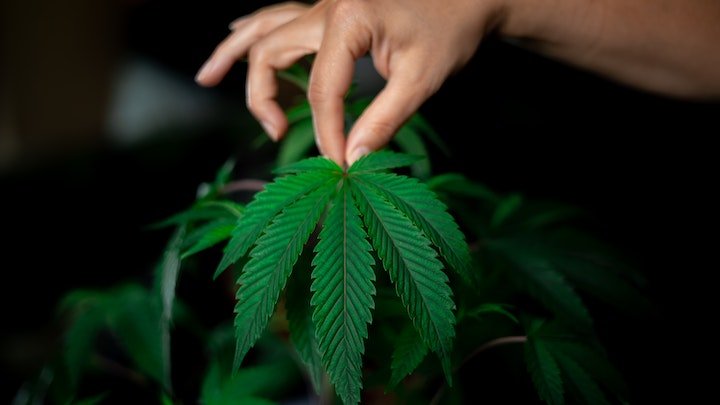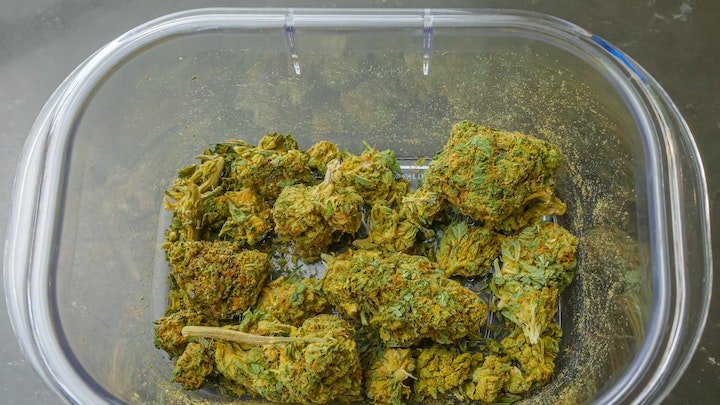As the most commonly used illegal drug, it’s important to know what cannabis’s effects are and how to best detox from it.
In England and Wales, “29.6 percent of people… aged between 16 and 59 [have] used cannabis at least once”.[1] As a psychoactive substance, cannabis use leads to withdrawal.
This is mainly made up of psychological symptoms.
It’s really normal to worry about quitting, especially if you use the drug in a self-medicating way. There are things you can do to make stopping use and managing symptoms easier.
Accessing rehab support offers the most efficient way to approach abstinence and a healthy lifestyle. Here you’ll learn about how to detox from cannabis addiction and the length of time it takes to do so.
What is a Cannabis Detox?

A detox is the physiological removal of toxins from the body. This is mainly the job of the liver but also the kidneys and colon.
Daily cannabis use obviously increases the number of toxins in the human body which can lead to negative health risks.
In a cannabis detox, you flush out any phytocannabinoids, the naturally occurring chemicals found in cannabis, and more importantly, the toxins found in the plant are eliminated too.
Toxins found in cannabis include:
- Ammonia
- Hydrogen cyanide
- Nitric oxide
- Aromatic amines.[2]
It takes quitting cannabis and ongoing abstinence for these chemicals and toxins to be totally removed from the body. A cannabis detox at a rehab centre includes 24-hour care from a team of addiction and medical professionals.
This can be especially helpful for regular, heavy, or addictive cannabis use as the withdrawal effects are much more pronounced.
A positive in relation to quitting cannabis is that withdrawal symptoms don’t last too long. You soon start to feel your usual self. The symptoms aren’t as severe as those experienced in the withdrawal of alcohol, for instance.
There are also other ways you can support your brain and body during a detox, such as through lymphatic massage, following a nutritional well-balanced diet, getting regulated sleep, and taking regular exercise.
What Factors Influence How Cannabis Affects You Physiologically?

There are many factors that affect how cannabis impacts your brain and body.
It’s really dependent on you as an individual as well as elements related to behaviours and the plant itself:
- Body mass index
- Metabolic rate
- How you take it (i.e. eating Vs smoking)
- How much you take
- How often you take it
- The strength of the cannabis strain you use
The Side Effects of Cannabis Use

There are common symptoms experienced when a person uses cannabis.
The usual side effects people hope for when using cannabis include:
- Euphoria
- Feelings of relaxation
- The giggles
- The distorted perception around time and sensory faculties
Cannabis use does, however, also lead to other effects that aren’t desirable.
These include:
- Anxiety
- Paranoia
- Social isolation
- Fluctuations in appetite
- Impaired memory
- Psychosis and schizophrenia, especially where there’s a genetic predisposition
- Damage to the lungs and body from the toxins taken in
- Toxicity when ingested in high amounts
- Disrupted vitals such as increased heart rate, a drop in blood pressure etc.
Risks of Cannabis Use in Pregnancy

Using cannabis during pregnancy can have serious effects on the newborn.
One research paper states, “Perinatal cannabis exposure was associated with low birth weight, reduction in the head circumference, cognitive deficits (attention, learning, and memory), disturbances in emotional response leading to aggressiveness, high impulsivity, or affective disorders, and higher risk to develop a substance use disorder“.[3]
If you’re pregnant and addicted to cannabis, it’s especially important to seek medical advice. Of course, quitting is the most obvious solution.
Accessing rehabilitation services where you’ll meet empathic professionals who understand addiction will offer the most comfortable type of support.
How Long Does Cannabis stay in the System?

Obviously, for chronic users, there is a higher concentration of THC metabolites in the system.
The body stores of THC are held in the fat cells – not just the bloodstream – and other naturally occurring chemicals in cannabis can take longer to excrete according to height, weight, how much you have taken etc.
However, as a general rule cannabis stays in the system for around the following lengths of time:
- In the blood for 1–2 days if a small dose has been used, it can take up to 25 days for large doses.
- THC can show up in urine tests up to 30 days after use. This is especially the case for heavy frequent use.
- It’s detectable in saliva for up to 29 days.
- Finally, traces of cannabis chemicals can be found in hair up to 90 days after use.
Cannabis; What Are the Symptoms of Withdrawal?

There are various marijuana withdrawal symptoms. These are experienced differently according to how much you use, how regularly, and the reasons for your cannabis use.
Of course, for heavy users and for people who have mental health conditions alongside cannabis use, withdrawal can be more difficult.
THC is the psychoactive chemical in cannabis that leads to addiction and withdrawal. This chemical causes various symptoms as outlined below but can also link to changes in time and sensory perception, as well as appetite as you readjust to sobriety.
These areas can be affected because of how THC disrupts perception and metabolism.
Cannabis withdrawal symptoms include:
- Low mood
- Anxiety
- Irritability and restlessness
- Sleep disturbance, insomnia, and nightmares
- Reduced appetite
While physical dependence isn’t a concern with cannabis, it can cause some physical withdrawal symptoms for some users.
Please note, cannabis use doesn’t cause physical dependency because if you were to go “cold turkey”, the body wouldn’t start shutting down (i.e. experiencing severe pain or seizures etc.)
Physical symptoms include:
- Nausea, stomach pain, vomiting
- Sweating
- Chills
- Headaches
Withdrawal can be really distressing for some, especially for those who have come to rely on it severely. Medical assistance from a professional can guide you through the process leading you to a place where you can manage the addiction successfully in the future.
A thought needs to be given to cravings. People tend to relapse because of cravings linked to uncomfortable withdrawal symptoms.
In such cases, it’s useful to be supported by a team who understands your situation and substance.
What Causes Cannabis Withdrawal?

The symptoms of cannabis withdrawal occur because regularly using a psychoactive substance changes how the brain functions. It has a direct impact on the brain causing you to experience certain effects.
When you use cannabis regularly, you become accustomed to the feeling of THC in the system. You start needing it to feel “normal”.
You’ll start to require more of it the more you use it in order to feel an effect. This is tolerance building up.
If you suddenly stop using cannabis, the brain and body start to react due to the absence of the substance it’s been accommodating.
What’s helpful to remember is that the more days of abstinence you achieve, the easier it is to manage cravings and avoid using cannabis in the future.
Cannabis Detox – Where Can You Go for Help?

There are different places you can go to access support to quit cannabis.
Firstly, there are outpatient clinics offered through the NHS. There you get a caseworker who will hold a couple of one-to-one sessions and you’ll be invited to weekly groups to support your recovery.
The second option, also where you can access an immersive cannabis detox and programme of treatment, is through an inpatient clinic.
These are available in the private sector. It’s helpful to know that this option has higher rates of recovery. Inpatient abstinence is achieved after following the detox process.
You follow a personalised treatment programme and have support from an on-site nurse, psychiatrist, therapists, and experienced workers. There are single or multi-occupancy rooms for you to choose from as you stay for a length of time.
Being in a new environment away from usual triggers offers you a stress-free recovery process and much easier weed withdrawal.
How Long is a Cannabis Detox?
It’s useful to know that cannabis withdrawal is at its worst in the first two to three days. The psychological effects of withdrawal can go on longer, usually lasting around two to three weeks. This is mainly experienced in your mood and through cravings.
In the event of severe addiction, it can feel much harder to quit and getting through these initial weeks is made much easier when you’re supported with therapies and activities that teach you how to manage withdrawal, cravings, and a sober lifestyle.
As mentioned earlier traces of cannabis are still detectable after a month and also in the first few weeks of abstinence, cravings are at their worst. Therefore the majority of patients are advised to stay at rehab for around 28 days.
Rehab Clinics – A Treatment Programme to Support You
At private rehab clinics, you can access a medical detox. Some people might be provided with a prescription to support mental health if there is a co-occurring mood disorder – (i.e. anxiety or depression).
Cravings are really important to treat in cannabis use disorder. Staff provide you the techniques to do this which you’ll carry into the future.
During the detox and rehab stay, you’ll be supported by staff in the following areas:
- Physical recovery is supported through a nutritional diet plan offering essential vitamins to help the brain and body heal. As well as this, gentle exercise such as yoga might be offered.
- Emotional recovery is supported through counselling sessions, alternative therapies, and reflective group sessions with other residents.
- Psychological recovery is supported through various therapies including cognitive behavioural therapy, dialectical behavioural therapy, and motivational interviewing.
What’s a Dual Diagnosis?

A dual diagnosis is where a person has both an addiction and mental health condition at the same time.
This tends to happen because people use substances to self-medicate around their moods or emotions.
Professional input is essential to a successful recovery if you have a cannabis use disorder alongside a mental health condition. This offers you the full support required to heal in a sustainable fashion.
Final Thoughts…
It can be really challenging to quit using cannabis. This is especially the case for frequent cannabis smokers who experience more pronounced severity of symptoms in relation to withdrawal.
A cannabis detox and a treatment plan of psychological therapies and alternative therapies provide the most effective way to quit cannabis.
These are available at private clinics throughout the UK. To find out where your nearest clinic is for cannabis addiction treatment, contact OK Rehab today.
FAQs
Cannabis Detox: How to Eliminate THC From Your System
The best way to eliminate THC from the system is through abstinence. You can drink 2–3 litres of water a day to help, but this won’t reach the THC stored in fat deposits. As well as this, you can eat a healthy well-balanced diet to support the system to eliminate toxins and exercise to burn the fat cells that THC stores.
How long will it take me to detox?
To detox fully from cannabis it takes about a month. In this time period, the system clears toxins and you get through the initial withdrawal period. This is aided by eating a well-balanced diet and exercising.
Why does it take so long for our bodies to process THC?
Traces of THC can still be found in the human body for up to a month after use.
How long does it take for cannabinoid receptors to return to normal?
It takes around 4 weeks of abstinence for normal functioning in cannabinoid receptors to return.
References
[1] https://www.statista.com/statistics/976850/cannabis-use-in-the-uk/
[2] https://www.sciencedaily.com/releases/2007/12/071217110328.htm
[3] https://www.frontiersin.org/articles/10.3389/fpsyt.2020.586447/full





